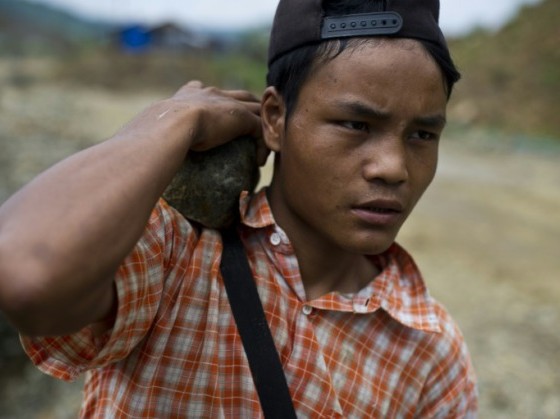BANGKOK, Thailand — They died in a deluge of worthless stones flecked, perhaps, with green pebbles worth tiny fortunes.
In Myanmar’s far north, more than 100 people were killed on Nov. 21 in a jade mine landslide. By Monday morning, bodies were still being pulled from beneath the rocks.
As the death toll rises, this catastrophe will likely draw attention to Myanmar’s brutal and corrupt jade industry.
